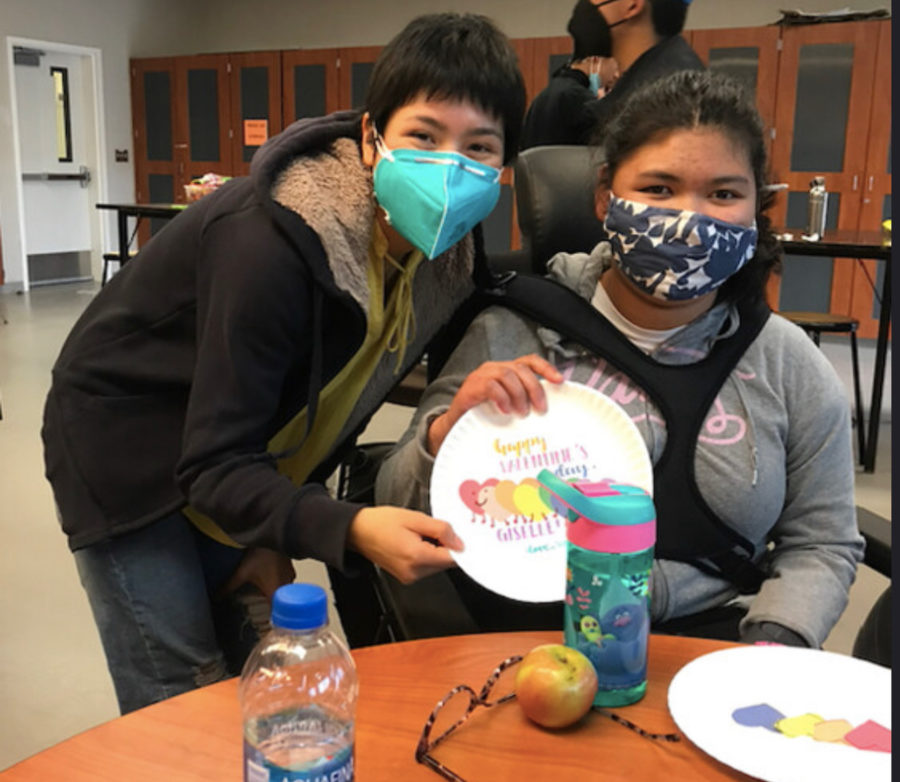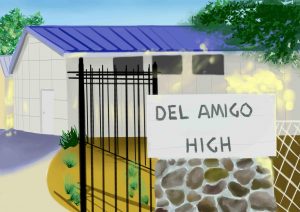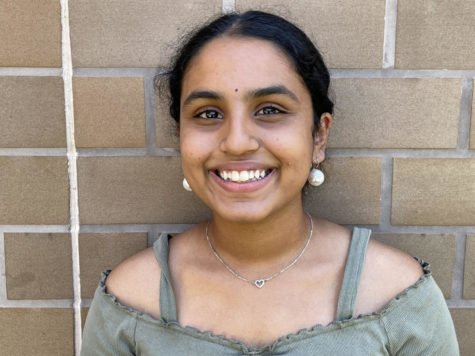Clubs work to make DVHS a more welcoming place for students with autism during Autism Awareness Month
Students in the Best Buddies club partner up for fun activities, such as making crafts, as a way to help form connections.
May 6, 2022
Autism Awareness Month takes place in the month of April and serves a way to increase understanding and acceptance of people on the autism spectrum.
“Sometimes, people associate challenges [and] disabilities with a negative connotation,” Megan Manley, an English 10 teacher at Dougherty Valley High School, says. “Giving it a month to be aware that there are people who do live and thrive on the [autism] spectrum and that everybody deserves an opportunity to be celebrated, supported, [and] loved [is] very important.”
Having a month dedicated to this cause is important to dispel misconceptions that people have about individuals affected by autism.
“I think a lot of people in our community don’t know much about autism. They might think they do, but they don’t,” Kevin Mallane, a Special Education teacher at DVHS, explains, “Autism awareness takes away fear that some people might have of working alongside someone with a disability.”
Although the school itself is not doing much to recognize this month, some clubs on campus are working towards helping students on the autism spectrum feel more welcome.
Manley, who has been the advisor of the Best Buddies club for three years, details the mission and goals of the main organization as well as the club at DVHS specifically.
“Best Buddies is a national organization. We participate in national events like buddy walks to support and raise money for people with different abilities or special needs. In terms of our club on campus, each of the students in the club is partnered with a student in one of the resource classes, and they become their buddy. We [do] activities with them [like] arts and crafts,” she says.
Circle of Friends, another club at DVHS, has a similar mission of encouraging students on campus to befriend students in the special needs classes.
“Circle of Friends is all about making connections with people and mak[ing] sure that everyone in our school feels like they belong. We have buddy lunches where our members get paired up with a buddy in a special needs class, and they have lunch together once a week,” Destiny Pinto, President of the Circle of Friends club, says. “Another activity we [have] is Friday Fun Festivities. We all get on a zoom call and play games. We have dance parties, we have talent shows, [and] we make crafts.”
While expressing that he thinks it’s wonderful for students on campus to be interacting with students in the Special Education classes, Mallane details some of his concerns with such clubs.
“Because of the nature of my students and some of the behaviors that result from [their] disabilities, I want to make sure that the students who are coming in really understand what they’re getting into and how something they say or do might affect my students [significantly] I’ve been working closely with the leaders of the two groups on campus to make sure that anyone who walks in and works with my students knows what to expect and what not to do.”
Although being part of one of these clubs requires training and a lot of dedication, working with these students is a very rewarding experience.
Mallane details his favorite part of being a teacher in the Special Education department: “I think it is challenging people’s expectations on what a student with an intensive disability can do. I like to surprise people and show them that a lot of my students have memorized up to 75 survival [skills]. They may not be able to read, but they have functional literacy that can really [help] serve them, and I’ve done that in eight months.”
Additionally, joining one of these clubs requires taking a step outside of your comfort zone and learning how to branch out.
“A lot of members have said [they learned] the value of friendship and [how to] make connections with people of different backgrounds,” Pinto says.
Manley explains how members of the Best Buddies club as well as students in the special needs classes benefit from the connections formed in the club.
“All of the students learn from each other, and they grow and form these relationships that are really adorable,” she says. “I love getting to see the students interact with one another and the joy that they bring out of each other. I personally have an uncle on the spectrum, so I’ve spent my whole life interacting with this community.”
Even students who aren’t involved in one of these clubs can participate in small acts of kindness to help make our school a more welcome place for students with autism.
“If you see anyone making fun of one of our students, whether they be in my intensive class or [one of] the two moderate classes, always say something,” Mallane says. “Don’t use pity, but just try to draw their attention [to the fact] that they need to respect [everyone].”
Oftentimes, people treat these students differently than they would treat others. However, this just perpetuates their difficulties.
“Don’t put them in this bubble of ‘the special ed kid.’ Talk to [them] like you would anyone else,” Mallane explains. “That way, they get real interaction with the world. Often the problem is that when people talk to our students, they talk to them like they’re children. As they get older, our jobs as teachers are finding them paid employment positions, [but] it’s hard to go work at Safeway when all your life, people have been treating you like you’re a child.”
Similarly, other measures that have been taken as a way to spread awareness about autism, such as the usage of the puzzle piece symbol, have only added on to existing misconceptions.
According to The Mighty, the puzzle piece symbol infantilizes autism. Since puzzles are generally a game played by kids, this symbol contributes to the perception that autism only affects children and that those with the condition should be treated like children.
Additionally, since a puzzle piece is part of a whole puzzle, a single puzzle piece by itself is unfinished. This insinuates the idea that people with autism are incomplete in some way. In reality, having autism should not change the fact that they are still a complete person and deserve to be respected like everyone else.
“We need to be [more] accepting of people’s differences,” Pinto reinforces.




